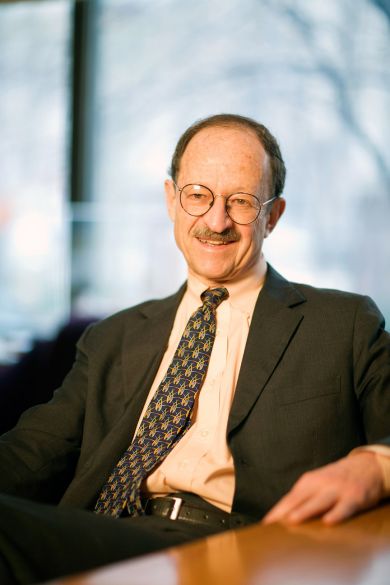Has research lost its way?
Harold Varmus,M.D., was keynote speaker for the New York Academy of Medicine’s 168th Anniversary Discourse & Awards. He took part in a Q&A that appered on the Urban Health Matters Blog.
Q: At the Academy discourse, you are going to explore why many promising young scientists may never get the chance to do their best work. What’s standing in their way?
A: The mood in our field is one of duress. Some people are happy, but many are not and that’s not an ideal situation. Too few people are getting grants. Because biomedical research has operated for decades on the assumption that the field would expand indefinitely, there’s now a mismatch between the sizable supply of young scientists and demand. This is not a good message to send to talented young people who are interested in our profession.
Q: What impact has this situation had on biomedical research?
A: Because of the overly competitive environment in our profession, people are less likely to pursue basic scientific inquiry. There’s a lot of good science being done, but people do not do the more basic work because they don’t believe that basic research is what gets funded. And to a significant extent, they are right. So they are pursuing research that’s more likely to lead to more tangible, usable results. And may be missing the more fundamental science with the greatest longterm benefits.
Q: What does this mean for the development of new careers?
A: The system has become so hypercompetitive that someone receiving a PhD today may not receive an NIH grant until he or she is 40 or older. Publishing in the most prestigious journals has become increasingly difficult and candidates for jobs and grants are often evaluated by the places they publish rather than by an appraisal of the work itself. In these circumstances, authors may be under more pressure to cut corners or exaggerate findings and that is not good for science.
This type of intense competition for limited resources can suppress risk-taking and creativity, in part because the time devoted to writing grants soaks up time that should be used to think and do experiments. It’s also an environment that dissuades students from selecting our profession and limits opportunities for experienced investigators to do their best work.
Q: What’s the answer?
A: There are many—that’s what my talk is going to be about at the discourse. It’s a multi-faceted problem in a very complex environment. So if you try to change one thing to solve part of the problem, it will naturally effect another area. This is not a simple problem to solve. But there are things that can be done to improve publication practices, accelerate and diversify training programs, and make evaluations more fair.
Q: In addition to taking on these tough issues in research, you’ve come to Weill Cornell and the Genome Center to begin a new chapter in your career. What are you working on?
A: At Weill Cornell, I’m continuing the work I’ve done for a few decades, asking how normal cells become cancer cells, using genetics, molecular biology, and animal and cell culture models of cancer. At the Genome Center, I am trying to help the cancer community in New York City make better use of genomic tools for research and clinical care, in part through collaborative interactions.



